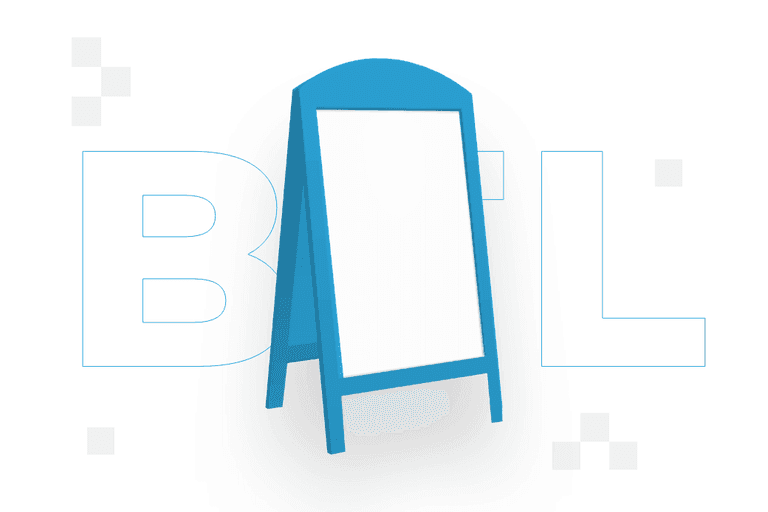
Whistleblowing – what is it and who are the whistleblowers?

Whistleblowing is a term that has been gaining increasing recognition in recent years – thanks in part to publicised situations such as Edward Snowden’s revelations about government surveillance programmes and the story of the startup Theranos founded by Elizabeth Holmes. But what exactly is whistleblowing and who are the people who do it?
What is whistleblowing?
In its simplest terms, whistleblowing, or whistleblowing, is the action of an employee, or someone otherwise connected to an organisation, speaking out about illegal or unethical behaviour within that organisation. Whistleblowing can involve incidents of fraud, corruption, security breaches, discrimination or other forms of misconduct. Whistleblowers are individuals who choose to take action and speak out on these issues, often putting themselves at great personal risk.
In this post, we will look at the whistleblowing environment, the importance of whistleblowers, the risks they face and the ethical considerations associated with whistleblowing. We will also look at the different types of whistleblowers, including internal, external, anonymous and retaliatory, and the risks they face when they come forward.
Whistleblowers are essential in today’s world as they contribute to transparency, accountability and social justice. In addition, we will explore the ethical considerations of whistleblowing, including when it is appropriate and what the consequences may be.
Types of whistleblowers
Based on motivations and circumstances, we can divide whistleblowers into several different types. Some whistleblowers are employees of the organisation they are acting against – for the purposes of this division, we call them internal whistleblowers. Other whistleblowers are external, meaning that they are not directly connected to the organisation, but have information about its misconduct. Some whistleblowers choose to remain anonymous, while others are prepared to put their name and reputation on the line. Finally, some whistleblowers act in retaliation, meaning that they make a report in response to alleged mistreatment or misconduct by their employer.
Internal whistleblowers
Internal whistleblowers are employees who speak out about illegal or unethical behaviour within their own organisation. They may do this by reporting the problem to a supervisor or another person within the organisation. Internal whistleblowers may also choose to report the problem to an external entity, such as a government agency or the media.
One advantage of internal whistleblowing is that it can enable organisations to respond quickly and effectively to problems before they become known to the public. However, internal whistleblowers may also face retaliation from their employer, such as dismissal, demotion or harassment. In some cases, internal whistleblowers may also be discouraged from speaking up due to fears of retaliation or lack of support from colleagues or supervisors.
External whistleblowers
External whistleblowers are individuals who do not work for the organisation they are speaking out against, but have information about wrongdoing associated with it. They may choose to report a problem either through the organisation’s internal channels or to a government agency, the media or a whistleblower support organisation. An example of such an external whistleblower would be, mentioned earlier, Edward Snowden.
One of the potential benefits of external whistleblowing is that it can provide whistleblowers with a higher level of protection, as they are not directly employed by the organisation they are reporting against. However, external whistleblowers may also face difficulties in gathering evidence and proving their case, as they may not have access to the same information as internal whistleblowers.
Anonymous whistleblowers
Anonymous informants are individuals who choose to remain anonymous when reporting misconduct. They may do this by using a dedicated whistleblower portal, a confidential email address or a telephone line.
One of the potential benefits of anonymous whistleblowing is that it can provide whistleblowers with a higher level of protection as they are not directly identified.
Retaliatory whistleblowers
Retaliatory whistleblowers are individuals who make a report in response to alleged mistreatment or misconduct by their employer. Such reports may relate to situations in retaliation after the whistleblower has been demoted, dismissed or subjected to harassment or discrimination.
Whistleblowers who retaliate may face additional challenges because they may be perceived as having ulterior motives for whistleblowing. However, it is important to remember that whistleblower retaliation is illegal and can have serious consequences for employers.
The role of whistleblowers
Whistleblowers play a key role in ensuring transparency, accountability and social justice. By speaking out about illegal or unethical behaviour, whistleblowers can help prevent harm to individuals, communities and the environment. They can also help hold organisations accountable for their actions and promote public trust.
However, whistleblowers face significant risks and challenges. They may face retaliation from their employer, which can take many forms, including dismissal, demotion, or harassment. They may also face reputational damage, difficulty finding employment, and even legal action.To counter these risks, many countries have enacted whistleblower protection laws that provide legal protections and incentives for whistleblowers to report misconduct. These laws can help encourage whistleblowers to come forward and ensure that they are not punished for doing so. The motivation for introducing such regulations in European Union countries was the Whistleblower Protection Directive.
The aim of the directive is to oblige companies and entities in the public sector to implement procedures to ensure that employees can confidentially report violations of the law.
However, whistleblower protection legislation is not foolproof, and many whistleblowers still face significant challenges when making a report. For example, some regulations only apply to certain types of wrongdoing or certain types of organisations, while others do not provide adequate protection for anonymous whistleblowers.
In Poland, these regulations are introduced by the Law on the Protection of Whistleblowers. The whistleblowers act will apply to any legal entity for which at least 50 people perform or provide work.
Challenges of whistleblowing
Whistleblowing can be a difficult and complex process. Some of the key challenges whistleblowers may face include:
- Fear of retaliation – perhaps the most significant challenge whistleblowers face is the fear of retaliation from the organisation.
- Lack of support – whistleblowers may also face a lack of support from colleagues, supervisors or other members of their organisation. This can make it difficult for them to gather evidence or prove their case.
- Legal challenges – whistleblowers may face legal challenges, such as lawsuits or criminal charges, from their employer or other parties.
- Emotional cost
Whistleblowing can also have a significant emotional cost for individuals. As a result of whistleblowers’ actions, they may experience stress, anxiety, depression or other mental health problems.
Tips for whistleblowers
Anyone considering reporting illegal or unethical behaviour should take steps in parallel to protect themselves. Here are some tips:
Gather evidence – before making a report, try to gather as much evidence as possible to support your claims. This can include documents, emails, recordings or other types of evidence.
Seek legal advice – consider speaking to a lawyer or legal expert who can advise you on the best way to proceed and help protect your rights.
Consider your options – think carefully about how to report – whether to report internally or externally and whether to do it anonymously or not. Each option has advantages and disadvantages, so it is important to consider your options carefully.
Be mindful – whistleblowing can be a stressful experience, so it is important to look after yourself both physically and emotionally. This may include support with friends, family or a mental health professional.
Summary
Whistleblowing is an important and necessary part of ensuring transparency, accountability and social justice. Whistleblowers play a key role in preventing harm to individuals, communities and the environment and promoting public trust. However, whistleblowers take significant risks when choosing to report.
To counter these risks, many countries have enacted whistleblower protection laws that provide legal protections and incentives for whistleblowers to report misconduct. However, whistleblower protection laws are not foolproof and many whistleblowers still face significant challenges. It is therefore important for whistleblowers to take steps to protect themselves.
Introducing a whistleblowing channel is one of the most significant actions an organisation can take to strengthen its employer brand. This is because it signals to employees that when threats to their personal safety or integrity arise, they are empowered to speak up.
What’s more, employees can go beyond the hierarchy of line managers and report their concern to the senior member of staff handling these calls. This sends a signal that management cares about them and their wellbeing.
Contact form
Develop your brand
Rate content:
You may be interested in:





